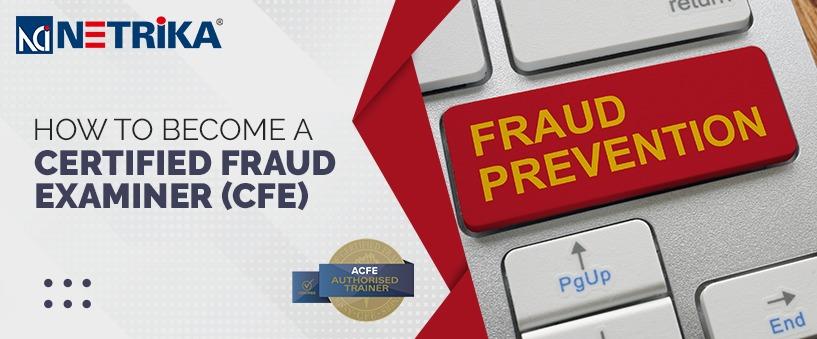Certified Fraud Examiner (CFE) certification establishes a continuous improvement environment for diagnosing, detecting and responding to fraud risk. The ACFE certification is a worldwide recognized, respected, and approved professional excellence standard representing verifiable evidence of anti-fraud expertise. And this is evident in the staggering figure of more than 75% of Fortune 500 corporations hiring at least one CFE. This reveals the growing momentum of fraudulent operations compromising enterprise safety and the requirement for a high degree of expertise and professionalism via a CFE accreditation.
However, for most professionals looking for a certified course to join the fraud investigation vertical, the basic details for ACFE can be vague or overwhelming. To support an aspirant’s understanding of CFE details understanding, we have curated a complete guide on how they can prepare for certified fraud examiner certification–
Becoming a CFE requires a combination of education, professional experience, and passing the CFE exam, including-
- Meet the CFE certification requirements
To be eligible to become a CFE, you need to have a minimum of a bachelor’s degree or equivalent from an accredited college or university and two years of professional experience in a field related to fraud detection and prevention. You can also substitute two years of relevant post-secondary education or professional experience for each year of the required experience. The candidate can also have experience in fraud-related fields of law, accounting, loss prevention or fraud investigation.
Your education and professional qualifications account for qualifying points, so they must obtain 50 points or more to be eligible for the CFE exam application.
- Become an ACFE member
The aspiring candidate must become an associate member of the ACFE before applying for the exam. The aspiring CFE must also hold high moral character and a code of professional ethics according to the ACFE certification requirement.
- Garner the CFE certification course content
The CFE exam covers Fraud Prevention and Deterrence, Financial Transactions and Fraud Schemes, Investigation, and Law. Review the exam content and use the ACFE study materials to prepare.
- Attend a CFE exam training course
The ACFE offers a CFE Exam Review Course that covers the exam content and provides study materials and sample exam questions. The course is available online and in person.
- Leverage the CFE certification prep material
Use additional exam prep material, such as study guides, flashcards and practice exams, to reinforce your understanding of the exam content.
- Apply for the CFE exam
Once you have met the eligibility requirements, submit your application for the CFE exam. The application requires you to provide information about your education, work experience, and professional references. The candidates also have to pay the CFE certification cost.
- Take the CFE exam
The CFE exam is a computer-based exam that consists of 100 multiple-choice questions. You have 60 days to complete the exam and must pass with a minimum score of 75%.
- Maintain your certification
To maintain your CFE certification, you must earn 20 hours of continuing professional education (CPE) each year and adhere to the ACFE Code of Ethics and Professional Standards.
Preparing for the CFE exam requires a combination of education, professional experience, and focused study of the exam content. Following these steps increases your chances of passing the exam and becoming a Certified Fraud Examiner.
To help professionals achieve the CFE certification, Netrika provides best-in-class certified training professionals with extensive experience in fraud detection and prevention to guide this process and deliver expert training. Netrika’s association with ACFE to become India’s exclusive training partner demonstrates the genuineness of its training professionals.


